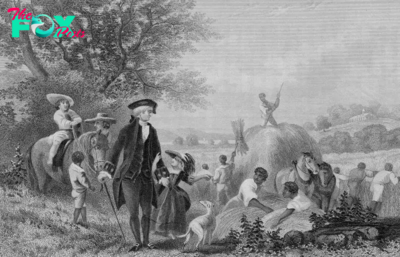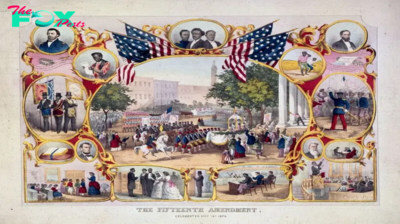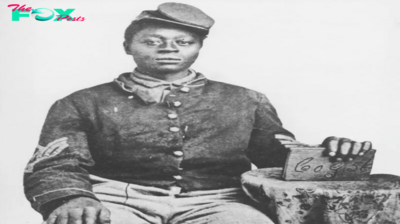History
The U.S. Faces the Same Risks Ancient Rome Faced in Caesar’s Day
Special prosecutors’ investigations of Joe Biden and Donald Trump do not mark the first time political tensions spilled into the justice system.
On Jan. 10, 49 B.C., Julius Caesar marched across the Rubicon river into Italy, launching a civil war against the Roman Republic. His reputed exclamation—iacta alea est, the die is cast—is famous. His reasons for fighting are more obscure. Though Caesar was certainly ambitious, it was not a desire for power that forced him to cross the river. It was legal danger.
Over his early career, Caesar had shown little respect for the law and constitutional norms, but neither had his conservative opponents. Corruption and political violence had become common while the justice system increasingly served as a political tool. Caesar had become governor of Gaul (modern France) due to the support of the elderly general Pompey and, while governor, he was immune from prosecution. But as Caesar’s governorship was expiring, Pompey turned on him. The old general devoted his army to the defense of the Republic, supporting officials who planned to charge Caesar with serious crimes. Pompey’s alliance with the conservatives pushed Caesar into a political corner. He only had one way out.
It’s hard not to see the resemblance between Caesar’s day and our own. Both featured conflict between populist politicians and a conservative establishment, which spiraled from legislative gridlock to the politicization of the criminal justice system. Resentment begot extreme measures and such measures demanded still sharper replies. While America’s military remains happily apolitical, Roman armies escalated the conflict from the courts to the battlefield. Officials who filed charges spurred outrage and sharpened the divides that would lead Rome to autocracy in the coming decades, a risk the United States may face today.
Read More: A Warning for Today's Super Rich From Ancient Rome's Wealthiest Man
In the late Roman Republic, the aristocracy claimed to uphold constitutional tradition, repeatedly clashing with populists advocating for the poor. Aristocrats saw their opponents as wannabe autocrats who only supported land reform and free distributions of grain to curry favor with the masses. As evidence, they could point to the populist Catiline who, after losing a series of elections, attempted to overthrow the Republic in 63 B.C. Four years later, the aristocrats got more justification for their feelings when a mob violently ejected one of Caesar’s opponents from a public assembly to assure the passage of one of his land reform laws.
But the aristocracy was far from a model of constitutional propriety. Pompey himself once had served the conservative general Sulla who temporarily resorted to having his army make him Dictator—purportedly to safeguard the Republic against populist challengers. Throughout his life, Pompey straddled the populist-elite divide. Though he commanded an army for Sulla, he later demanded extraordinary powers from the Republic, eventually joining the populist Caesar to secure grants for his soldiers. But in 49 B.C., Pompey’s jealousy of the younger Caesar may have driven him to betray his erstwhile ally and rejoin the elite faction.
Writing about a century after the civil war between Caesar and the Republic, the poet Lucan compared Pompey to an old oak tree. Tall and proud, but ancient, with leafless branches. Lucan, a blue-blooded aristocrat, loathed Caesar for precipitating civil wars that replaced the Republic with autocracy. But while he damned Caesar, he had to explain populists’ ultimate victory. Pompey and Caesar’s armies eventually met at Pharsalus in Greece on Aug. 9, 48 B.C. When his elite allies, rabid with hatred for Caesar, pushed the elderly Pompey to fight the battle too soon, his younger rival eviscerated Pompey’s army.
In the end, Caesar’s brilliance didn’t last long. Conservative senators stabbed him to death at a meeting of the Senate five years later. CoNFLict among his successors and opponents spiraled for more than a decade before his adopted son and heir Augustus became the first emperor. He allowed elections to continue in name so that no one quite realized he had ended the Republic until it was too late.
Though the Roman Republic is a worrying precedent, there is one key difference between it and modern America. Pompey, Caesar, and their rivals were almost all experienced generals who ransacked the Mediterranean, winning armies’ personal loyalty with distributions of land and booty. On the contrary, while the U.S. Military faces bipartisan criticism, soldiers show no inclination to make generals into dictators. In fact, politicians are decreasingly likely to have any Military experience at all.
But Caesar’s age does offer lessons for contemporary Americans. Few Romans at the time could have guessed how the civil wars would end. After multiple dictators, an authoritarian monarchy would have presented little surprise. But the way it happened was less predictable.
Read More: Men Think About the Roman Empire All the Time. Here’s What Women Say They Think About
Like Americans today, Romans were exhausted by perPetual coNFLict and provocation. Both sides grew willing to acquiesce to an order that would end the coNFLict, so long as it made a show of respecting their values. Augustus realized this. As Caesar’s adopted son, he could claim the loyalty of the populists and he preserved existing measures like free grain. But he also incessantly mouthed politically correct niceties about respect for the Republic, posing as her conservative defender.

It's easy to imagine a similar recipe for political success today. The (political) heir of a populist could rely on inherited support to gain power. If he then adopted a politically correct style, elites might be willing to overlook his real agenda even as the masses continued to support him out of personal loyalty. The Roman transition to authoritarianism—elections for officials who no longer held real authority; a ruler who declined office for informal power—these could be powerful in the modern world. The ultimate threat to political freedom is not sharp differences, but the inability to settle them without resorting to autocracy.
But there are grounds for optimism. Roman emperors could not have suppressed charismatic challengers without the (sometimes) hidden threat of force. The legal battle over the 2024 U.S. presidential election may threaten our democratic tradition, but so long as the army remains in its barracks, the country is unlikely to adopt a monarchy. A die may be cast, but it is not destined to land on the same side as Caesar’s.
Jeffrey E. Schulman is a Ph.D. student at Groningen University, working on the political History of the Roman Empire.
Made by History takes readers beyond the headlines with articles written and edited by professional historians. Learn more about Made by History at TIME here. Opinions expressed do not necessarily reflect the views of TIME editors.
-

 History1w ago
History1w agoWhy People Should Stop Comparing the U.S. to Weimar Germany
-

 History1w ago
History1w agoFlorida’s History Shows That Crossing Voters on Abortion Has Consequences
-

 History1w ago
History1w agoThe 1994 Campaign that Anticipated Trump’s Immigration Stance
-

 History2w ago
History2w agoThe Kamala Harris ‘Opportunity Agenda for Black Men’ Might Be Good Politics, But History Reveals It Has Flaws
-

 History2w ago
History2w agoLegacies of Slavery Across the Americas Still Shape Our Politics
-

 History2w ago
History2w agoKamala Harris Is Dressing for the Presidency
-

 History2w ago
History2w agoWhat Melania Trump’s Decision to Speak Out on Abortion Says About the GOP
-

 History2w ago
History2w agoThe Long Global History of Ghosts



























